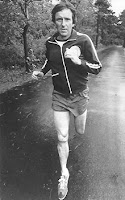 A message that I try to get out in my book, The Six Keys To Optimal Health, is that exercising for purely aesthetic reasons is a sure to lead to frustration and disappointment for many. It’s the best way to guarantee an abandoned physical fitness program when things don’t turn out the way you’ve fantasized. I think a much better approach is to exercise for the myriad of physiological or health benefits you will surely enjoy if only you can keep up the effort.
A message that I try to get out in my book, The Six Keys To Optimal Health, is that exercising for purely aesthetic reasons is a sure to lead to frustration and disappointment for many. It’s the best way to guarantee an abandoned physical fitness program when things don’t turn out the way you’ve fantasized. I think a much better approach is to exercise for the myriad of physiological or health benefits you will surely enjoy if only you can keep up the effort.
I think what happens is that people want to lose weight and “get ripped.” Nothing wrong with either of these desires. But what happens when it doesn’t occur over night, or in a few months? Well, many people end up frustrated, and say, “This isn’t working.” They then come up with all kinds of implausible excuses why it’s not working for them: genetics, slow metabolism, or the old, “I work out all the time, but I never seem to lose weight.”
 Well here’s good news this week out of the University of Michigan: Fat metabolism speeds up in just one exercise session. That’s right! Just one workout and fat burning increases. This lowers your chance of developing insulin resistance–the hallmark of type 2 diabetes–and increases your ability to burn fat in the future. How? Exercising increases the ability to store fat in the muscle tissue as triglycerides, which makes it available for quick energy; much quicker than the fat filled adipose tissue we store around our bellies, butts and hips.
Well here’s good news this week out of the University of Michigan: Fat metabolism speeds up in just one exercise session. That’s right! Just one workout and fat burning increases. This lowers your chance of developing insulin resistance–the hallmark of type 2 diabetes–and increases your ability to burn fat in the future. How? Exercising increases the ability to store fat in the muscle tissue as triglycerides, which makes it available for quick energy; much quicker than the fat filled adipose tissue we store around our bellies, butts and hips.
 So even if you find that you “never seem to lose weight” no matter how much you exercise, just know that despite what seems to be slow going, you’re doing yourself a great physiological and health service by working out regularly. If what you say about working out all the time is true, then you might need to be honest with yourself and cut the calories you’re ingesting everyday in the form of food, booze or soda. But you can be sure that your metabolism is working faster and burning fat more efficiently if you are exercising. And even if that’s the most you get out of it, you are still doing your body a world of good.
So even if you find that you “never seem to lose weight” no matter how much you exercise, just know that despite what seems to be slow going, you’re doing yourself a great physiological and health service by working out regularly. If what you say about working out all the time is true, then you might need to be honest with yourself and cut the calories you’re ingesting everyday in the form of food, booze or soda. But you can be sure that your metabolism is working faster and burning fat more efficiently if you are exercising. And even if that’s the most you get out of it, you are still doing your body a world of good.












